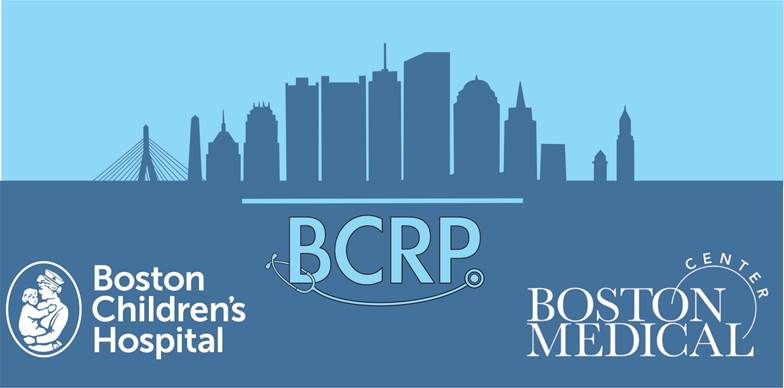Four-Year Pediatrics-Medical Genetics Residency Training Program
Boston Combined Pediatrics Residency Program and Harvard Medical School Medical Genetics Residency Combined Training Program
The Boston Combined Residency Program in Pediatrics, together with the Harvard Medical School Residency Program in Medical Genetics, offer a combined four-year training program in pediatrics and medical genetics. Graduates of the program will be fully qualified and board eligible in both pediatrics and medical genetics. In addition to their pediatrics training at Boston Children’s Hospital and Boston Medical Center, participants gain access to innovative clinical and research opportunities in genetics.
Residents spend the first year in pediatrics residency at Boston Children’s Hospital and Boston Medical Center. The first-year rotation schedule of residents in the combined pediatrics-medical genetics residency is nearly identical to the schedule in the Categorical and Leadership in Equity and Advocacy tracks. Residents in this program, however, will be offered two additional months of subspecialty elective training and, accordingly, may be assigned less time on general pediatrics inpatient rotations.
During the following two years, trainees alternate between pediatrics and medical genetics every six months. Residents complete the majority of the core pediatrics rotations assigned in the Categorical track. The length of rotations on some subspecialty inpatient services may be abbreviated. The fourth and final year is dedicated primarily to research in the trainee’s area of interest in medical genetics. The curriculum is designed to assure a cohesive, planned educational experience that integrates pediatrics and medical genetics throughout the training program.
The Pediatrics training in the combined program is designed to assure that the resident is competent in caring for infants, children, and adolescents. Fifty percent of this training is in an ambulatory setting including rotations in oncology, adolescent medicine, child development, well baby nursery, emergency medicine, gastroenterology, pulmonary, and renal medicine. There is additional training in general pediatrics inpatient care, neonatal ICU, ICU, intermediate care, pediatric continuity clinic, and behavioral/developmental pediatrics. Residents attend a weekly pediatrics continuity clinic both during pediatric rotations and genetic rotations.
The Medical Genetics training in the combined program is designed to complement and integrate with the Pediatrics training by providing training in dysmorphology, inborn errors of metabolism, prenatal diagnosis, genomics, adult genetic disease and cancer genetics. In addition, the program aims to help residents become familiar with the performance and interpretation of cytogenetic, biochemical, and molecular genetic laboratory tests; become proficient in risk assessment based on family history and laboratory data; develop excellent communication skills with patients, families, and colleagues; provide a knowledge base of the basic science of genetics and development; allow residents to become sensitive to ethical issues in genetics and genetic counseling; and provide an opportunity to participate in a research project and develop clinical and laboratory research skills.
During the twelve months spent in formal medical genetics training, residents provide patient care on both the inpatient consult service and in the outpatient clinic.
Residents spend three months at Boston Children’s, participating in both inpatient and outpatient care. The inpatient consult service provides expert care for hospitalized children with both metabolic and general genetic disorders. In the outpatient setting, residents typically participate in the care of patients with undiagnosed genetic disorders, metabolic disorders, and in the longitudinal management of patients with known cardiology, craniofacial, skeletal dysplasia, connective tissue, and neurofibromatosis disorders seen in genetics subspecialty clinics.
At Massachusetts General Hospital, residents again cover both inpatient and outpatient services. The patient population at Massachusetts General Hospital includes both children and adults.
Two months are spent rotating through the Brigham and Women’s Hospital, the Dana Farber Cancer Institute, and the Veteran’s Hospital, with a focus on adult genetics and cancer genetics. Residents will also complete a separate month-long rotation in the Brigham’s Maternal-Fetal Medicine Center, where they will see patients for prenatal genetic counseling.
In the third year of residency, residents spend two weeks each in a molecular genetics laboratory, a biochemical laboratory, and a cytogenetics laboratory. After the twelve months of genetics rotations, one clinic will then serve as a continuity clinic for the remainder of the program. Residents attend this continuity clinic biweekly during the laboratory rotations and research months. The remaining medical genetics blocks are spent pursuing a mentored medical genetics research project. The research project, while primarily focused on a medical genetics question, is expected to either directly or indirectly benefit children. The research can be completed anywhere in the Harvard Medical School system, according to resident’s interest and the availability of a mentor.
During both the medical genetics and pediatrics months, teaching skills are honed by didactic presentations at seminars and conferences to medical students, graduate students, and residents. There are several pediatrics months dedicated to allowing the resident to oversee other more junior trainees. During the medical genetics months, the resident will oversee other residents and medical students completing a medical genetics elective.
Integration of the two training programs occurs at several different levels. Pediatric continuity clinic continues during the genetics months. The weekly Advanced Fetal Care Conference and pediatrics conferences are attended by pediatrics and medical genetics faculty. When the resident is completing an inpatient medical genetics consultation month, he or she will be interacting with their pediatrics residency peers in a teaching and an advisory role.
The co-directors of the combined residency, Dr. Amy Roberts (Medical Genetics) and Dr. Ted Sectish (Pediatrics) will together advise the resident, allowing for integrated training and mentorship.
For more information about Harvard Medical School Genetics training click here.



